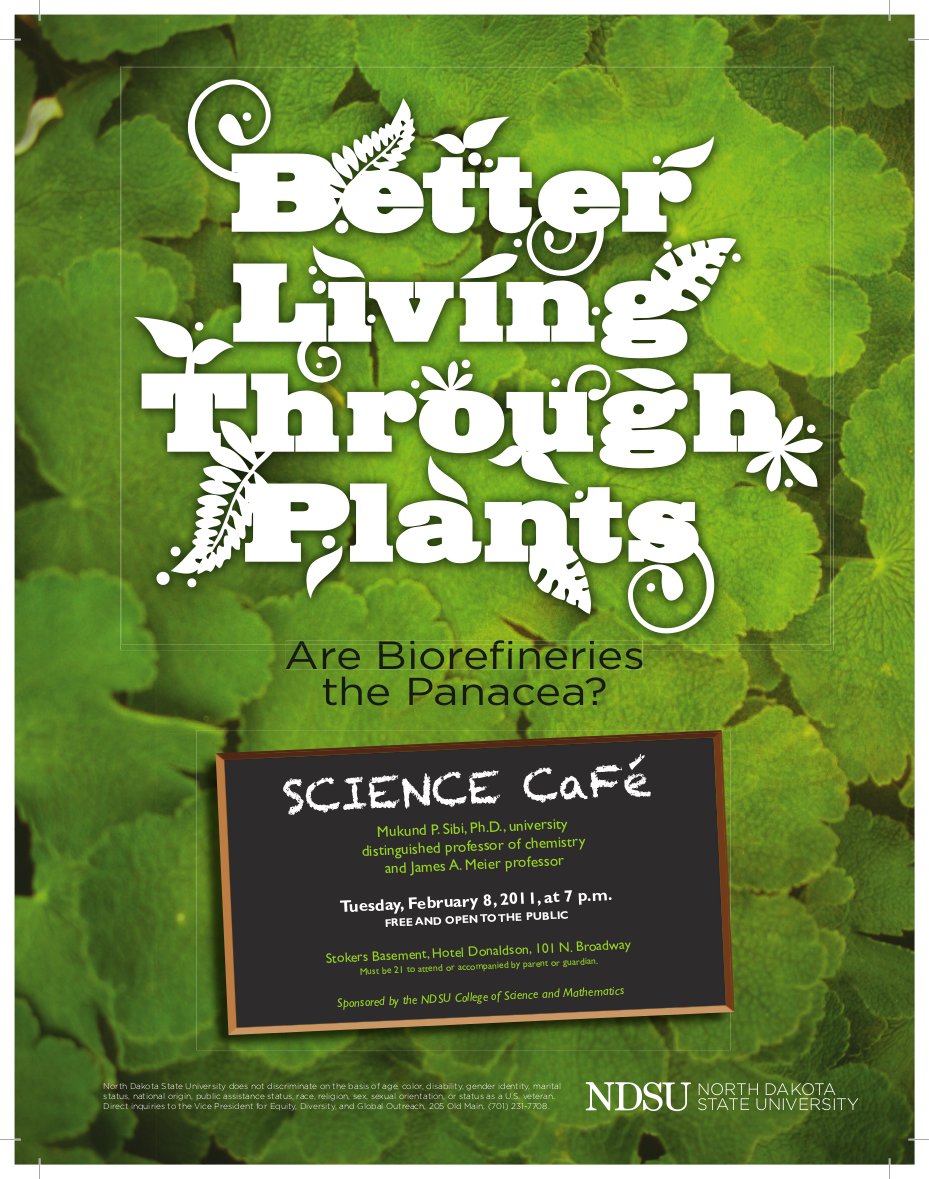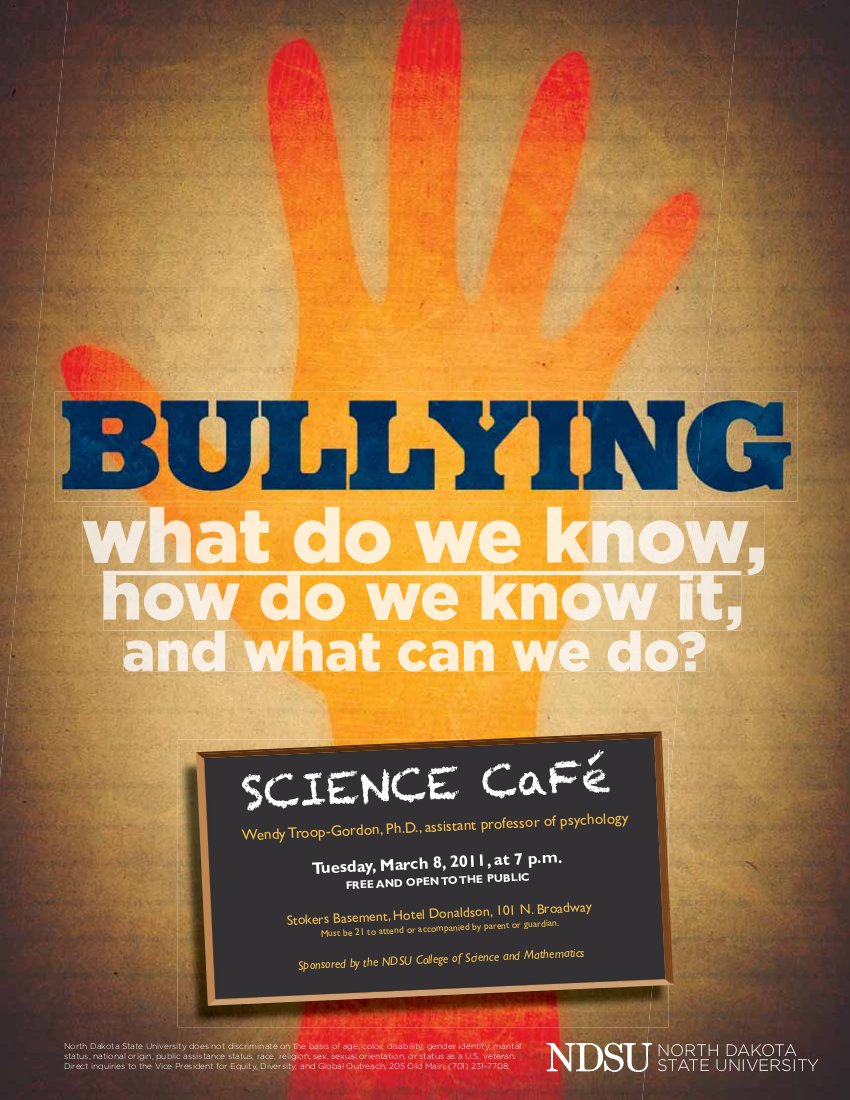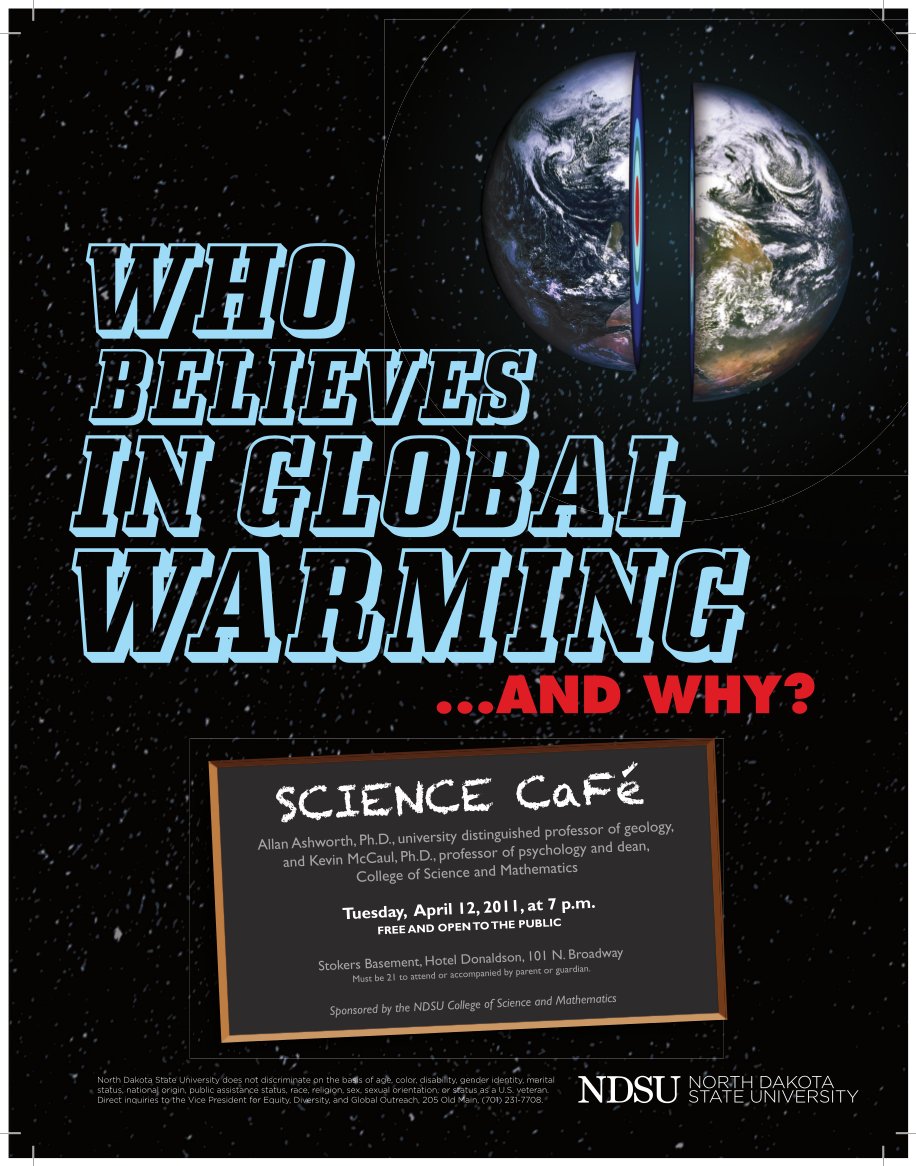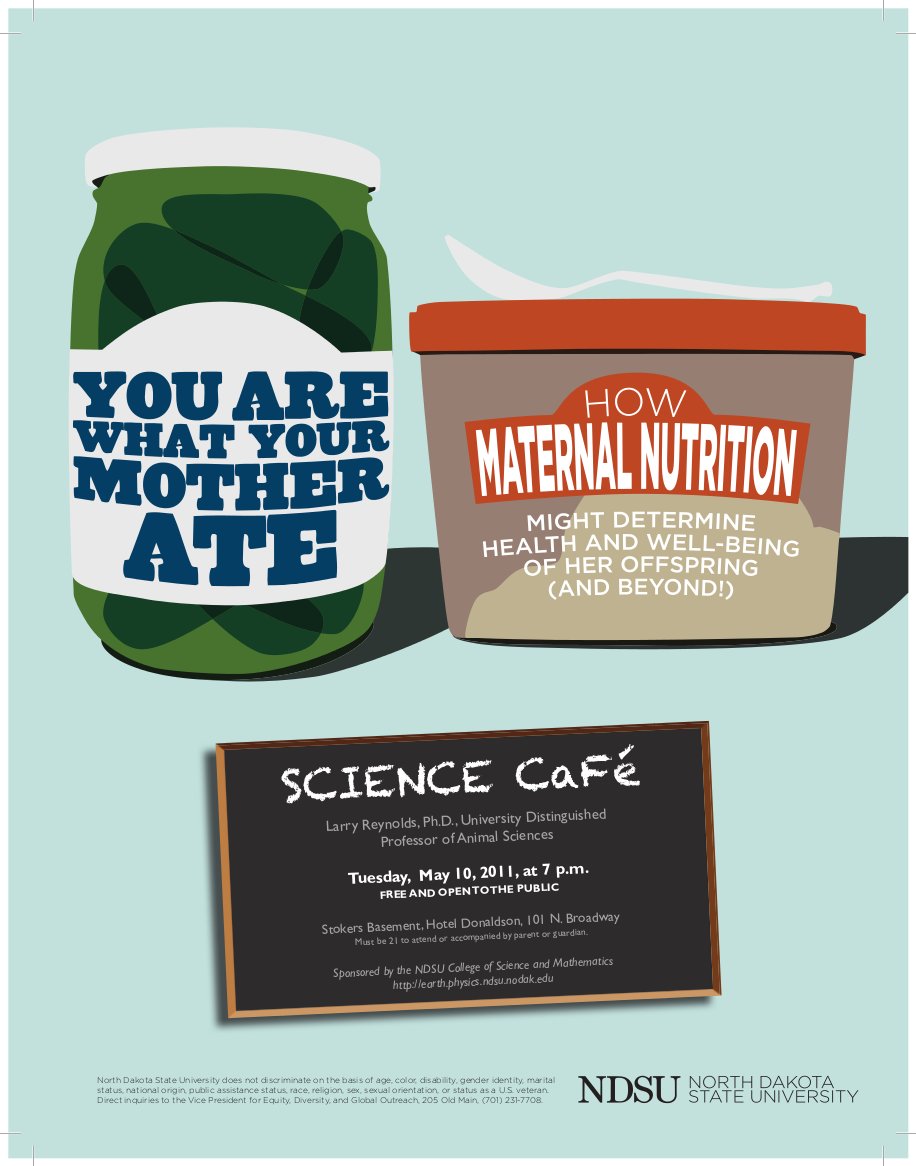
Better Living through Plants. Are Biorefineries the next Panacea?
Mukund P. Sibi
Department of Chemistry and Biochemistry, North Dakota State University
Fossil fuels are currently our primary source of energy and chemicals. There is a large debate on the sustainability of fossil fuels as an energy source for the future as well as its negative impact on global climate. Thus there is an urgency to identify eco-friendly alternatives to fossil fuels. Biomass has been hailed as a potential renewable resource alternative to fossil fuels. This talk will discuss the pros and cons on the concept of biorefineries as a replacement for petroleum refineries to meet the growing needs of the 21st century world.

Bullying: What Do We Know, How Do We Know It, and What We Can Do?
Wendy Troop-Gordon
Department of Psychology, North Dakota State University,
North Dakota State University
Media attention on bullying has increased in recent months as a number of suicides have highlighted the significant impact harassment from peers can have on children’s health, well being, and safety. This has led to a great deal of information, and misinformation, being presented to the public. How prevalent is bullying exactly? How does it occur? Who is most at risk, and what are the consequences for children’s and adolescents’ development? In this talk, Troop-Gordon will discuss how researchers study bullying and will provide an overview of what investigators have learned, including some of her recent findings from data collected in North Dakota and Minnesota. Discussion will focus on what we can do to prevent bullying and help youth who are victimized by peers.

Who Believes in Global Warming ... and Why?
Allan Ashworth† , Kevin McCaul‡
†Department of Geosciences,
North Dakota State University, ‡College of Science & Mathematics,
North Dakota State University
In this Science Café, two professors address two research questions. First, Allan Ashworth, Professor of Geosciences and University Professor, describes the research persuading him that global warming is here and that humans have helped cause the problem. Second, Kevin McCaul, Professor of Psychology and Dean, College of Science & Mathematics, describes research showing enormous group differences in whether people “believe” in the problem of global warming. Finally, both presenters will join in discussions with the audience about why such group differences exist and how one might close the gap in beliefs about global warming.

You Are What Your Mother Ate: How Maternal Nutrition Might Determine Health and Well-Being of Her Offspring (and Beyond!)
Larry Reynolds
Department of Animal Sciences, North Dakota State University
In this presentation, Dr. Larry Reynolds, University Distinguished Professor, will explain one of the major emerging concepts in all of biology and medicine – namely Fetal, or Developmental, Programming. In the last 20+ years, research in Developmental Programming has shown that various maternal factors such as malnutrition, age, genotype, stress, etc., may affect not only fetal and postnatal growth and development, but also may profoundly influence health and well-being of the offspring as adults. For example, poor maternal nutrition during pregnancy can lead to a much greater incidence of metabolic syndrome (obesity, diabetes, and cardiovascular disease) in her offspring once they reach adulthood, and can even have similar health consequences in subsequent generations. Dr. Reynolds also will describe how various large animal models, including several of his research group’s models in sheep, have contributed to our understanding of the basis of Developmental Programming and, most importantly, are providing promising and relatively simply strategies that clinicians and livestock producers might be able to use to minimize the negative consequences of Developmental Programming.